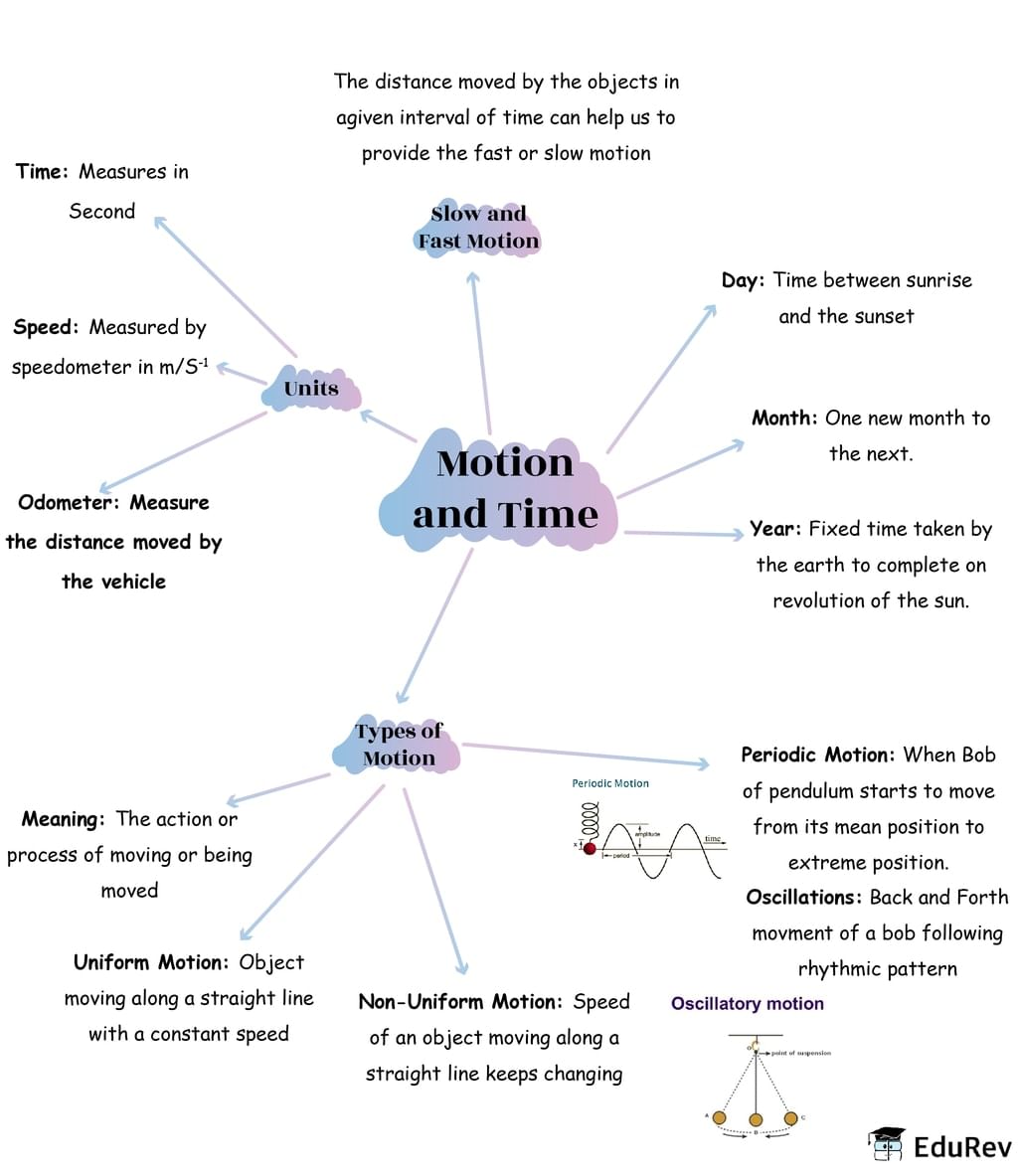UPSC Exam > UPSC Notes > Mind Map: Motion and Time
Mind Map: Motion and Time - UPSC PDF Download
FAQs on Mind Map: Motion and Time - UPSC
| 1. What is motion? |  |
Ans. Motion refers to the change in position of an object with respect to its surroundings over time. It can be described in terms of speed, direction, and distance covered.
| 2. What is the difference between uniform and non-uniform motion? |  |
Ans. Uniform motion is when an object covers equal distances in equal intervals of time, while in non-uniform motion, the object covers unequal distances in equal intervals of time or equal distances in unequal intervals of time.
| 3. How is time measured? |  |
Ans. Time is commonly measured using various units such as seconds, minutes, hours, days, etc. The most accurate measurement of time is done using atomic clocks that are based on the vibrations of atoms.
| 4. What is the relationship between distance, time, and speed? |  |
Ans. The relationship between distance, time, and speed can be described by the formula: speed = distance/time. It means that speed is the ratio of distance traveled to the time taken to cover that distance.
| 5. How does acceleration relate to motion and time? |  |
Ans. Acceleration is the rate at which an object changes its velocity. It is related to motion and time as acceleration can be calculated by dividing the change in velocity by the change in time. Therefore, the greater the acceleration, the faster the change in velocity over a given time period.
Related Searches





















